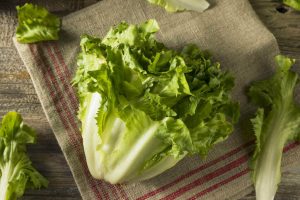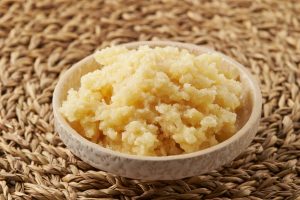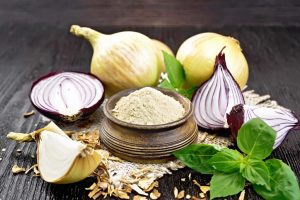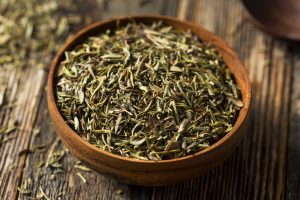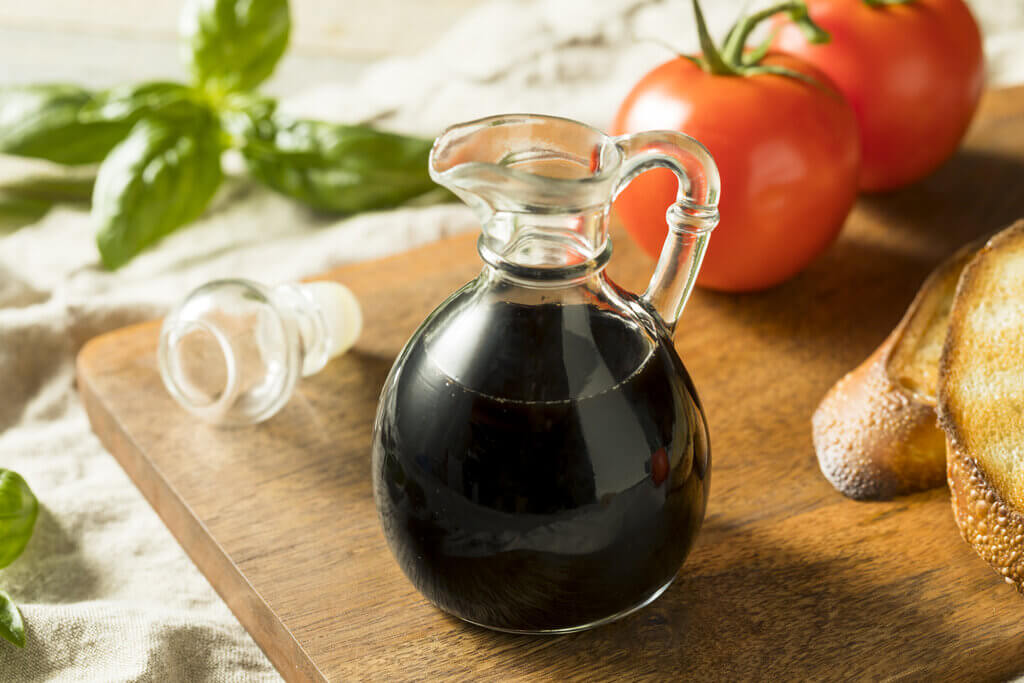
You might recognize balsamic vinegar from the menus of gourmet restaurants and the shelves of your local supermarkets. It might even be in the recipe you’re following right now as you decided to try your take on Italian cuisine for your loved ones! Mostly incorporated in dressings for salads and steaks, balsamic vinegar is a staple condiment in Italian cooking. It lends vibrancy and complexity to any dish from your simple tossed salads, glazed brussels sprouts, to even roasted meats as a balsamic reduction or glaze.
But what if a recipe calls for it, and you can’t get your hands on a bottle of balsamic vinegar? Well, we’ve gladly boiled down the best picks for balsamic substitutes just for you!
What Is Balsamic Vinegar
This highly prized condiment originated from the city of Modena in Italy. It offers the delectable notes of molasses, figs, cherries, and prunes in every drop and its acidic qualities make for a great addition to marinades and salad dressings.
The traditional manner of producing balsamic vinegar has remained the same, though nowadays they are made with modern tools. Making balsamic vinegar is a laborious process. It is made by slowly cooking grape juice until it reduces into a more syrupy consistency and then fermented for many years (12 years or more). This lengthy aging process is what makes true and high-quality balsamic vinegar expensive. Meanwhile, the more affordable ones are aged less and contain additives to imitate the color and taste of traditionally made balsamic vinegar.
What Can You Substitute for Balsamic Vinegar?
If you decide to try new recipes and venture into Italian cuisine, some dishes might call for this condiment. But even without a bottle of this ingredient in your pantry, you can still add decadence to your dish by using any of the balsamic vinegar substitutes below!
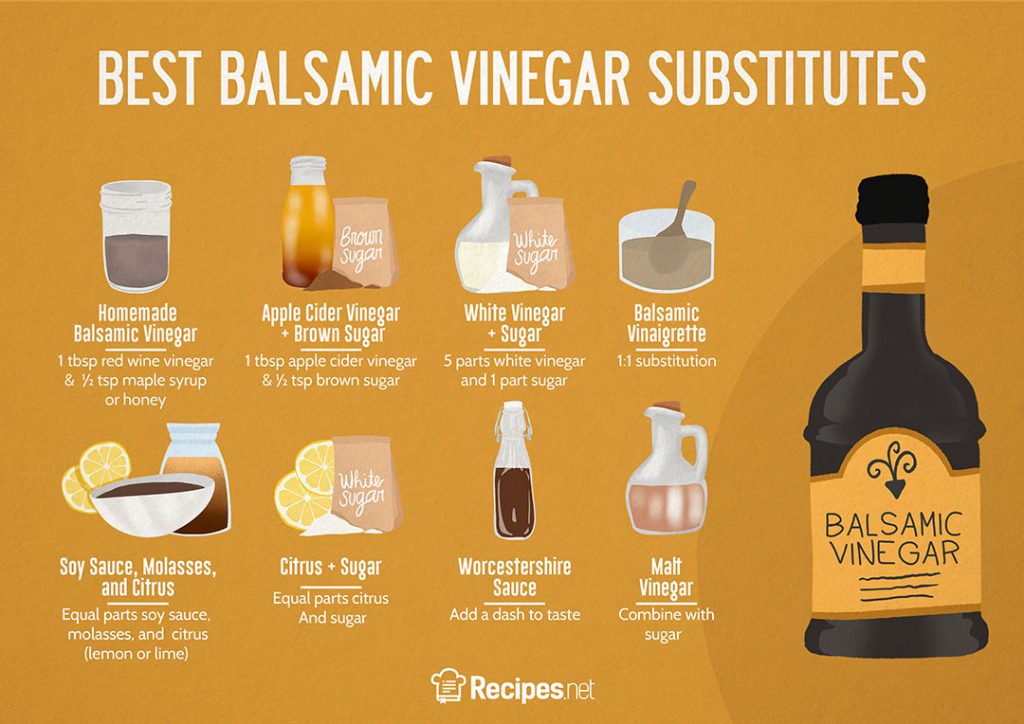
Homemade Balsamic Vinegar
The best way to replace balsamic vinegar in any recipe is to make your version at home! It is easy to replicate its bright taste with the use of classic pantry staples. To make your own homemade balsamic vinegar substitute, all you need is a combination of red wine vinegar and maple syrup.
Red wine vinegar has a richer taste that better mimics balsamic vinegar due to its vibrance and fermented quality. Pair this with maple syrup or honey to copy the deep sweetness balsamic vinegar is known for. Using syrups as a sweetener offers a thicker consistency which would closely resemble the viscosity of this dark vinegar.
To make your own DIY homemade balsamic vinegar, check out our how-to guide below.
Apple Cider Vinegar and Sweetener
The next best bet for a balsamic vinegar substitute is using a fruity vinegar like apple cider vinegar. Using the tanginess of this vinegar is good for adding brightness to vinaigrettes and salad dressings. If you also want a fruitier taste in your cooking, this alternative is the best way to get that zing. Meanwhile, the addition of brown sugar is essential to impart the rounded taste of molasses that alludes to the fullness of balsamic vinegar.
For this swap, you only need to mix 1 tablespoon of apple cider vinegar with ½ teaspoon of brown sugar. Do note that you will need to dissolve the sugar first by heating the mixture slightly to incorporate it well.
White Vinegar and Sugar
On the other hand, you might not have apple cider vinegar or red wine vinegar at your disposal. Well, don’t rush to the store just yet! You can also use white wine vinegar or any vinegar such as distilled white vinegar, rice wine vinegar, or cane vinegar as a substitute.
Whiter varieties of vinegar are usually a lot milder and less sweet than other types of vinegar, making it a good base for a quick alternative. Simply mix 5 parts of the white vinegar of your choice with 1 part of sugar (preferably brown for a deeper molasses-like taste). Dissolve the sugar first by putting it on low heat.
Balsamic Vinaigrette
If you’re fond of tossing a quick salad, you might have an array of dressings and vinaigrettes in your refrigerator. You can effortlessly ease your cooking worries away with a bottle of balsamic vinaigrette. This works as a great swap because balsamic vinaigrette is simply just a mixture of balsamic vinegar and olive oil. The addition of olive oil isn’t a big deal though if that’s what you’re wondering. Some recipes might also ask for the inclusion of olive oil so this wouldn’t alter the taste significantly.
You can substitute the needed balsamic vinegar in your dish for the same amount of balsamic vinaigrette.
Soy Sauce, Molasses, and Citrus
Your dish won’t miss the deep and full flavor of balsamic vinegar if you use soy sauce as a replacement. Deemed as an essential ingredient in the kitchen, soy sauce imparts an enjoyable savory flavor to any dish. If you combine the dark taste of soy sauce with the oaky sweetness of molasses and the sour zing of citrus (lemon or lime), you can easily mimic the familiar taste of balsamic vinegar. By whipping up an equal combination of these simple ingredients, you’ll be ready to drizzle umami on your food in no time!
Citrus and Sweetener
Ran out of luck and vinegar in your kitchen? This balsamic vinegar substitute is the right one for you! If there aren’t any other options in your kitchen cabinet, you’re in luck if there is a bunch of citrus on your counter. Give those life-given lemons (or lime) a squeeze to replace the acidity of the vinegar and incorporate a little sweetness in the mix!
For this balsamic vinegar substitute, using sweeteners like brown sugar, molasses, honey, or maple syrup is highly recommended to imitate the full-flavored quality of balsamic vinegar. Heat an equal ratio of citrus to sugar in a small saucepan to dissolve the sugar granules.
READ ALSO: 14 Best Honey Substitutes That Are Just as Good
Worcestershire Sauce
This condiment is most commonly used in marinades and as a seasoning due to its complex flavor profile. Made from the fermented combination of vinegar, anchovies, tamarind, molasses, and other ingredients, this can stand in as a savory replacement for balsamic vinegar. It’s a viable option for when you’re making pasta sauce as it adds an umami taste that can elevate the taste of your cooking. A little splash of this goes a long way, so taste as you add.
Malt Vinegar
If the only form of vinegar you have in your kitchen cabinet is a bottle of malt vinegar, you can also use it as a balsamic vinegar substitute. It is often used for pickling or salad dressings. This vinegar is oaky and has the essence of beer as it is made from malted barley grains which offer a different taste from balsamic vinegar.
If you opt to use this as a swap, know that it will add a different flavor as it is quite intense. If you don’t mind this and need the tartness in your dish, you can mellow this out by combining it with sugar according to your preference. Do remember to dissolve the sugar completely before using it.
How to Make Balsamic Vinegar Substitute

Balsamic vinegar is widely used in many dishes such as salad dressings, sauces, and marinades. It imparts rich and luscious flavors, all thanks to its aging process. This, however, adds a bit to its cost. Perhaps you’ve already finished a bottle of this prized liquid or are hesitant to purchase it for its price. You can try this DIY balsamic vinegar substitute so you don’t miss out on the good stuff!
Ingredients
- 1 tbsp of red wine vinegar
- ½ tsp of maple syrup or honey
Preparation
- In a bowl, combine the red wine vinegar and maple syrup or honey. Use sweeteners with more decadent molasses flavors like honey or maple syrup. This is important to closely resemble the deepness of balsamic vinegar.
- There’s no need to heat up this mixture. Just give it a good stir until well combined.
Note
This balsamic vinegar substitute covers 1 tablespoon of the balsamic vinegar you need to swap. You can easily double the amount needed depending on how much a recipe calls for.
Frequently Asked Questions
Can You Substitute Apple Cider Vinegar or Red Wine Vinegar for Balsamic Vinegar?
Yes! Our homemade balsamic vinegar recipe uses red wine vinegar in the mix and the next best bet is to use apple cider vinegar. This is because either of these two can be a great balsamic vinegar substitute. Apple cider vinegar is a good substitute for its fruitiness and tang. Plus, it is such a common condiment that every home cook would certainly one have on hand. On another note, red wine vinegar is essentially a less sweet and less aged version of balsamic vinegar. But red wine vinegar is the closest in terms of taste, you just need to boost it with the help of your preferred sweetener.
Is Balsamic Vinegar Good for You?
Balsamic vinegar is an excellent accompaniment to healthy dishes like salads, but it is also full of nutritional benefits on its own. It is said that balsamic vinegar can help in lowering cholesterol, maintaining a healthy gut, and even making your skin clearer and brighter.
How Long Does Balsamic Vinegar Last?
If properly kept, balsamic vinegar usually remains at its best for at least three to five years. You can identify the best-by dates of balsamic vinegar as indicated on the bottle. These dates let you see how long balsamic vinegar would stay in great quality. Past these dates, they would still be safe to consume (if stored properly) but the quality wouldn’t be as great.

